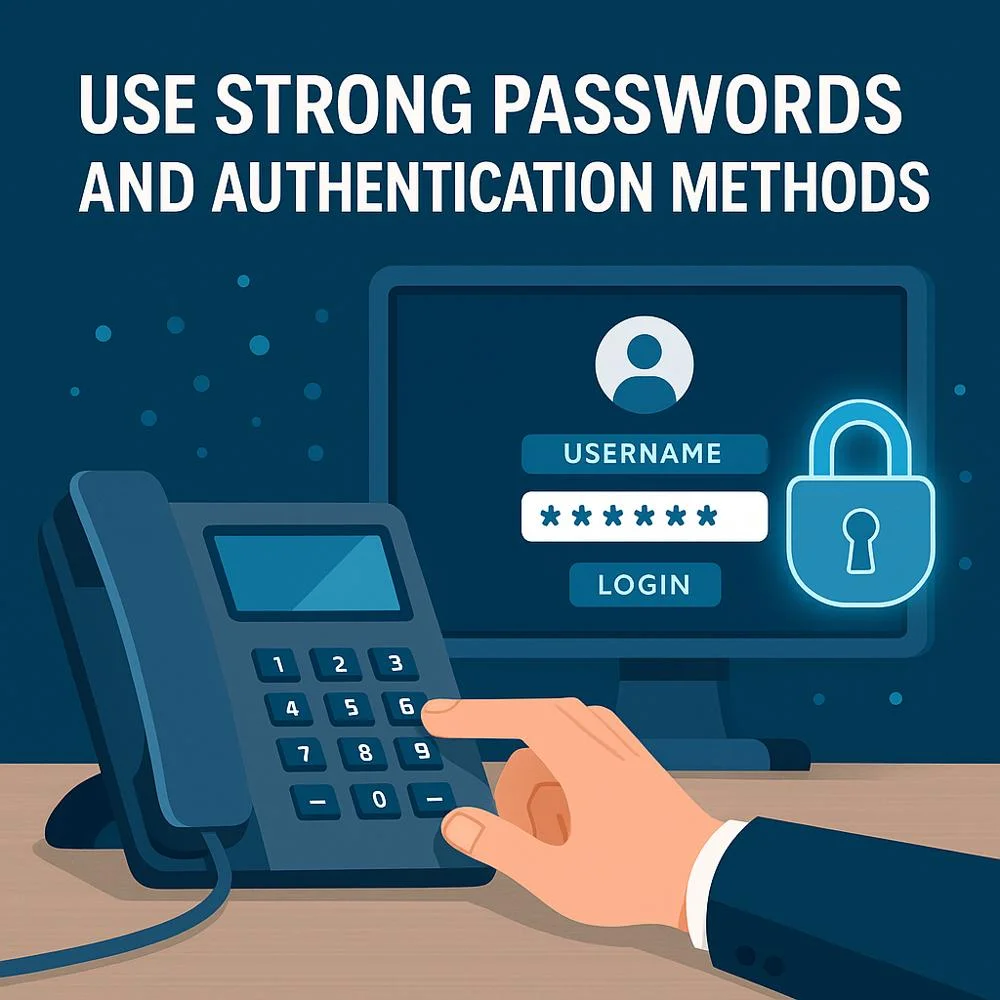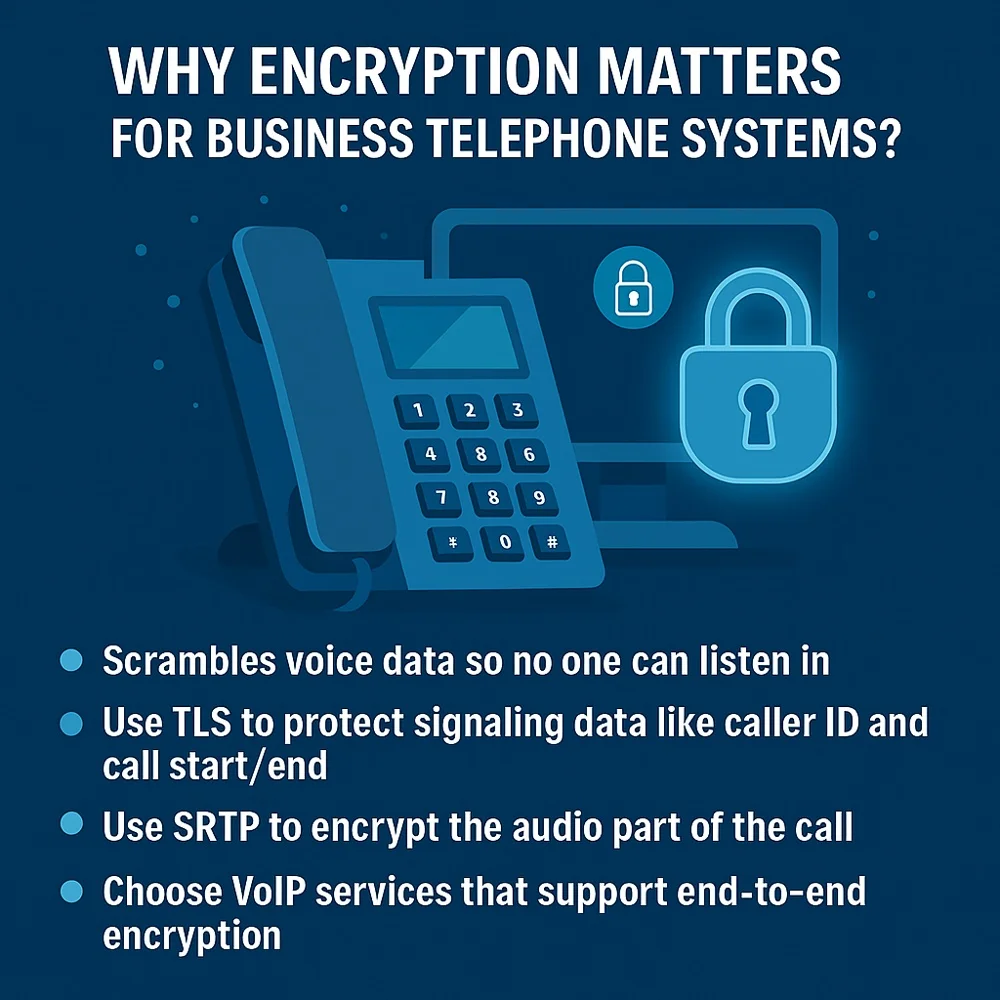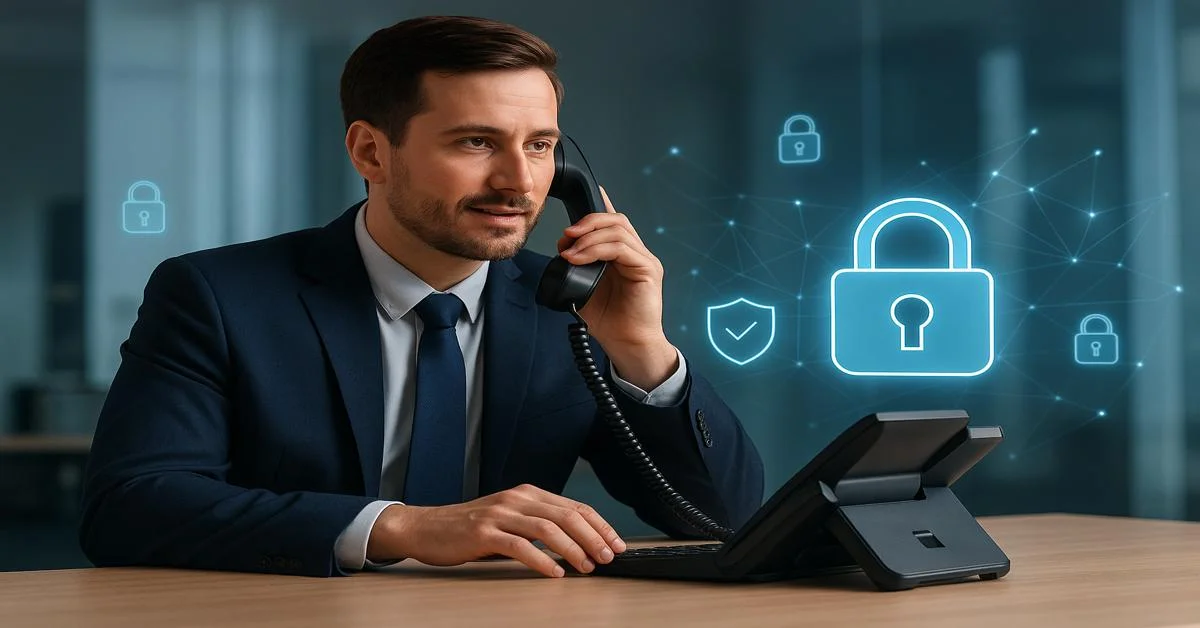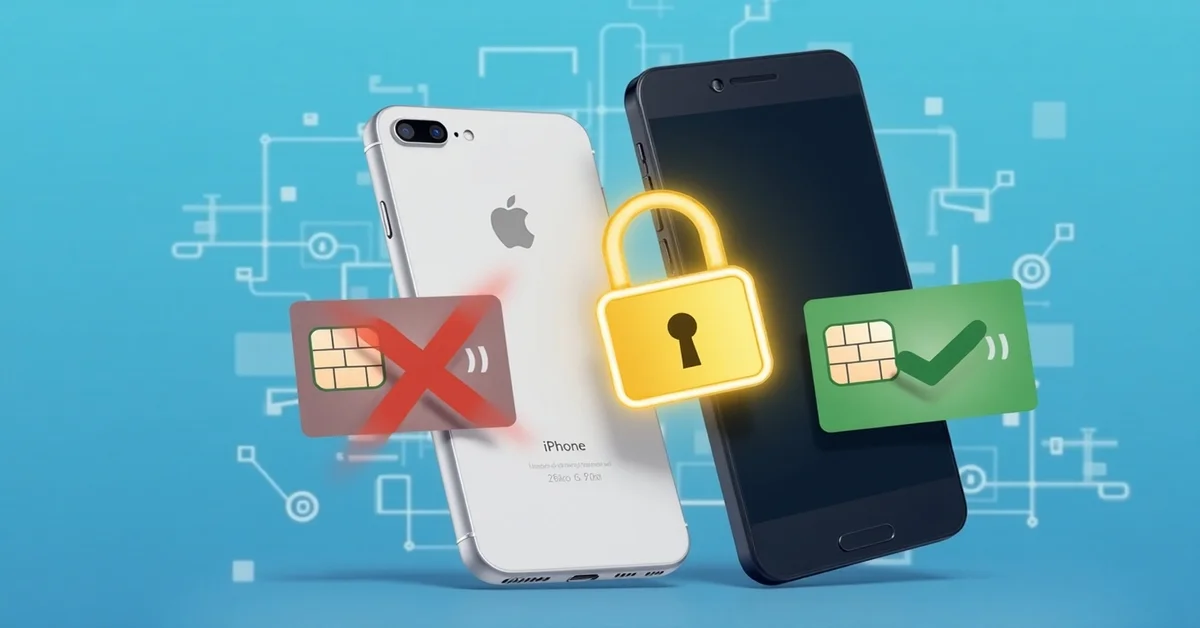In today’s digital world, learning how to secure your business telephone systems against cyber threats is just as important as protecting your website or customer data. Many businesses now use internet-based phone systems (VoIP), which save money and offer more features. But if they’re not properly secured, hackers can steal data, spy on calls or shut your system down.
Understand Cyber Threats to Business Telephone Systems
The first step to secure your business telephone systems against cyber threats is knowing what risks you face. These include:
- Eavesdropping: If your calls aren’t encrypted, hackers can listen to conversations and steal private details like passwords, billing info or strategies.
- Caller ID Spoofing and Vishing: Attackers pretend to be someone trustworthy, like a bank or manager and trick your team into revealing sensitive data.
- Denial of Service (DoS) Attacks: These attacks flood your phone system with fake traffic to make it crash or become unusable.
- Toll Fraud: Hackers gain access to your system and make international calls, leaving you with large bills.
- Voice Malware: Like email viruses, malicious code can infect phone systems and steal or lock your information.
By understanding these threats, you can take the right steps to protect your communication.
How to Protect Business Telephone Systems with Strong Passwords?
To secure your business telephone systems against cyber threats, you must first lock down access:

- Always change the default usernames and passwords on phones and VoIP devices.
- Choose complex passwords using a mix of characters to keep your system secure.
- Enable Multi-Factor Authentication (MFA) so users must confirm their identity with an extra step like a phone code.
- Limit admin rights only give full access to people who really need it.
- These basic actions block one of the easiest ways for hackers to get in.
Why Encryption Matters for Business Telephone Systems?
Encryption is a must when trying to secure your business telephone systems against cyber threats. It scrambles voice data so no one can listen in.

- Use TLS to protect signaling data like caller ID and call start/end.
- Use SRTP to encrypt the audio part of the call.
- Choose VoIP services that support end-to-end encryption.
- Encrypt stored voicemails and call logs to protect them even if your system is accessed.
Even if a hacker intercepts the data, encryption keeps it unreadable.
Keep Business Telephone Systems Safe with Firewalls and Network Separate
A great way to secure your business telephone systems against cyber threats is to create a safe space just for your voice traffic:
- Set up a separate network (VLAN) for phone calls. Keep it away from your main business or guest Wi-Fi.
- Use VoIP firewalls and Session Border Controllers (SBCs) to manage traffic and block strange activity.
- Install Intrusion Detection Systems (IDS) or Prevention Systems (IPS) to alert you of any unusual behavior.
When your voice system is on its own secure lane, it becomes much harder for hackers to sneak in.
Keep Your System Updated and Backed Up
Outdated software is one of the biggest risks to any system. To secure your business telephone systems against cyber threats, you must keep everything current.
- Regularly update firmware and software on phones, routers, and PBX servers.
- Turn on auto-updates when possible.
- Subscribe to vendor alerts for new security patches.
- Back up your system configuration and call records regularly and test restoration often.
This prevents attacks from known bugs and keeps your data safe in case of failure.
Monitor for Unusual Activity
To catch threats early, monitor how your phone system behaves daily. Here’s what to look for:
- Check Call Detail Records (CDRs) for calls to unknown or foreign numbers.
- Set alerts for too many failed login attempts.
- Keep an eye on unusual increases in call traffic or data use, it could signal a problem.
These small signs can point to a big problem, so acting quickly can save your business time and money.
Use Caller ID Protection (STIR/SHAKEN)
To further secure your business telephone systems against cyber threats like spoofing, apply caller ID verification:
- Set up STIR/SHAKEN protocols to digitally sign outbound calls and verify the caller’s identity.
- Ensure your VoIP provider supports this system, and labels calls as verified or not.
- This protects your customers and builds trust in your outgoing calls.
Caller ID spoofing is a favorite trick of scammers, so STIR/SHAKEN is an important defense.
Make Remote Access Safe
If your staff works from home or uses phones remotely, you need to secure their connection:
- Require use of a VPN (Virtual Private Network) to access your phone system.
- Install antivirus and firewall protection on all remote devices.
- Turn off unneeded features or permissions on VoIP apps or softphones.
Remote users often become the weakest point don’t leave them unprotected.
Train Your Staff to Recognize Phone Scams
No system is secure without people who know how to use it safely. Teach your staff:
- Never to share passwords or private data over the phone.
- To confirm unexpected callers by calling back on a known number.
- How to spot signs of spoofed or robotic calls.
- Who to contact internally if they receive a suspicious call.
- Hold short training sessions and do mock calls to make sure everyone stays alert.
Perform Regular Security Audits and Tests
One of the smartest ways to secure your business telephone systems against cyber threats is to test it before someone else does:
- Hire professionals to conduct penetration testing and try to break into your system.
- Review who has access to what and removes unused accounts.
- Check call logs, passwords, and hardware records monthly.
Audits help you find problems before attackers do.
Choosing the Right Provider for Secure Business Telephone Systems
Your phone provider plays a major role in keeping your system safe:
- Choose providers that offer encryption, STIR/SHAKEN, regular updates, and security monitoring.
- Ask if they follow global standards and how they respond to threats.
- Review their security track record and reviews before signing up.
A trusted provider gives you built-in protection from day one.
Have a Plan for Security Incidents
Even the best protection can’t guarantee 100% safety. Be ready with a plan:
- Create an incident response guide with steps to follow during a breach.
- Assign roles to staff for who responds, who notifies customers and who contacts your provider.
- Practice the plan during drills and simulations.
When everyone knows what to do, your business recovers faster.
Final Thoughts
You don’t need to be a tech expert to secure your business phone systems just follow smart and consistent practices. Using strong passwords, encryption, staff training, and reliable providers adds layers of protection against cyber threats. A secure phone system means smoother operations and a safer future for your business.



